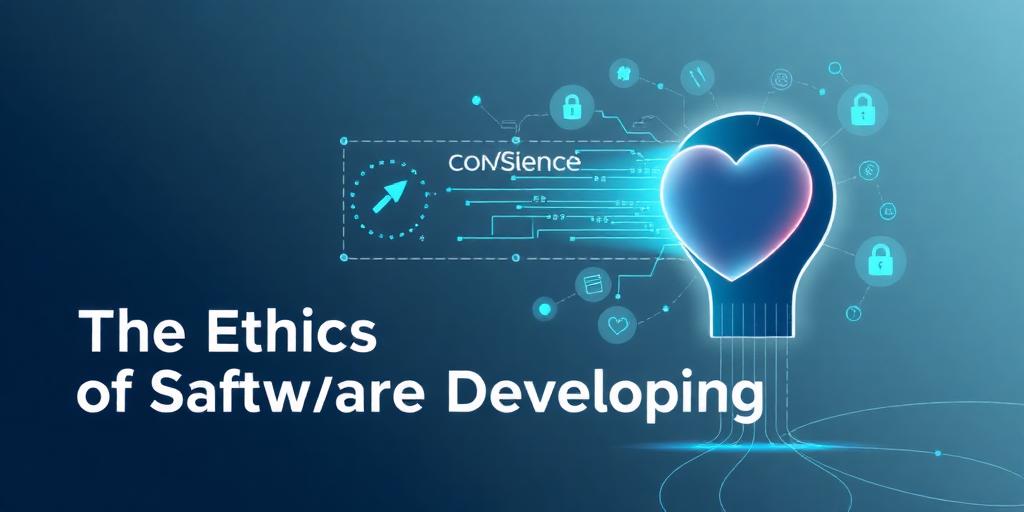In an increasingly digitized world, software development has transcended its purely technical roots to become a profound driver of societal change. With this power comes immense responsibility, making the ethics of software development not merely a philosophical debate, but an operational imperative. Writing code with a conscience means actively considering the societal, economic, and individual impacts of our creations, moving beyond functionality to encompass integrity and human welfare.
Defining Ethical Software Development
Ethical software development is the practice of designing, building, and deploying software systems that uphold moral principles, respect human rights, and contribute positively to society. It demands that developers, architects, and product managers critically evaluate the potential implications of their work. This goes beyond mere compliance with legal regulations; it requires a proactive stance towards minimizing harm and maximizing societal benefit. Embracing ethical coding practices is fundamental to building trust and ensuring the sustainable evolution of technology.
Pillars of Conscientious Code Creation
Several core principles guide responsible software engineering, each demanding careful consideration throughout the development lifecycle:
1. Privacy and Data Sovereignty
One of the most critical ethical considerations is the handling of user data. Developers bear the responsibility to design systems that protect user privacy, implement robust security measures, and ensure transparency in data collection and usage. This necessitates adhering to principles of data minimization—collecting only what is strictly necessary—and providing users with clear control over their personal information. Ignoring these principles can lead to significant breaches of trust and tangible harm.
2. Algorithmic Fairness and Bias Mitigation
Algorithms are not inherently neutral; they reflect the biases present in the data they are trained on and the assumptions of their creators. It is imperative that developers actively work to identify and mitigate bias in their algorithms, especially in systems that influence critical decisions such as hiring, lending, or criminal justice. This involves diverse data sets, rigorous testing, and fairness metrics to ensure equitable outcomes for all users, particularly when building ethical AI systems.
3. Accessibility and Inclusivity
Software should be usable by everyone, regardless of their abilities or circumstances. Ethical development mandates designing for accessibility, ensuring that individuals with disabilities can interact with applications effectively. Adhering to standards like WCAG (Web Content Accessibility Guidelines) is not just good practice; it is a moral obligation to ensure technology empowers, rather than excludes, any segment of the population.
4. Transparency and Explainability
The "black box" nature of some complex algorithms can erode public trust. Ethical software development strives for transparency, enabling users and stakeholders to understand how a system works and why it makes certain decisions. For critical applications, explainable AI (XAI) is paramount, providing insights into algorithmic reasoning and fostering accountability.
5. Environmental Responsibility
While often overlooked, the environmental footprint of software is substantial. Data centers consume vast amounts of energy, and inefficient code contributes to increased energy demands. Conscientious code creation also means optimizing algorithms and infrastructure for energy efficiency, reducing computational waste, and considering the full lifecycle impact of hardware and software deployment.
Integrating Ethics into the Development Lifecycle
For "writing code with a conscience" to be more than a slogan, ethical considerations must be woven into every stage of the software development lifecycle:
- Design Phase: Conduct ethical impact assessments to foresee potential harms and benefits.
- Development Phase: Implement secure coding practices, ensure data privacy by design, and perform bias detection and mitigation.
- Testing Phase: Rigorously test for fairness, accessibility, and security vulnerabilities.
- Deployment and Maintenance: Monitor for unintended consequences, provide channels for user feedback on ethical concerns, and commit to continuous improvement.
The Imperative for Responsible Software Developers
Ultimately, the burden of ethical software development rests with the individuals who create it. Software developers hold significant power in shaping the digital future, and with that power comes a profound ethical obligation. Fostering a culture of ethical discussion within teams, engaging in continuous learning about emerging ethical challenges, and advocating for responsible practices are crucial steps. The commitment to ethical coding practices is not a hindrance to innovation, but a bedrock upon which truly beneficial and sustainable technology can be built. By embracing these principles, we ensure that software serves humanity's best interests, responsibly and conscientiously.









